#Architectural Review
Explore tagged Tumblr posts
Text
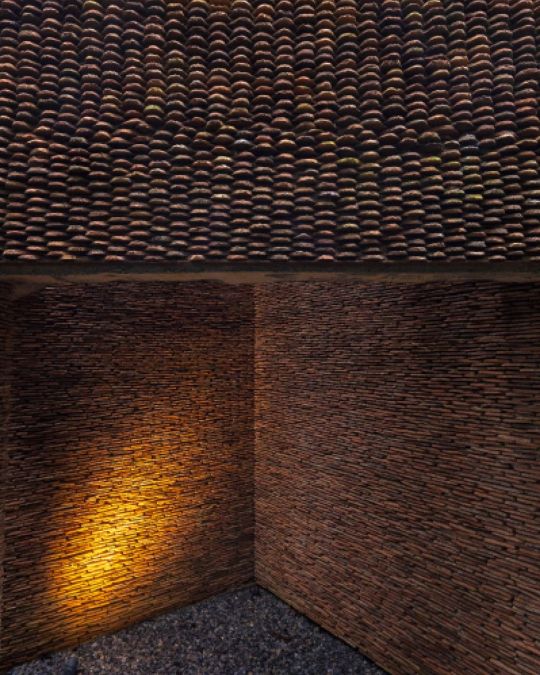
Nguyễn Hà | Triệu Chiến | Architectural Review
26 notes
·
View notes
Text
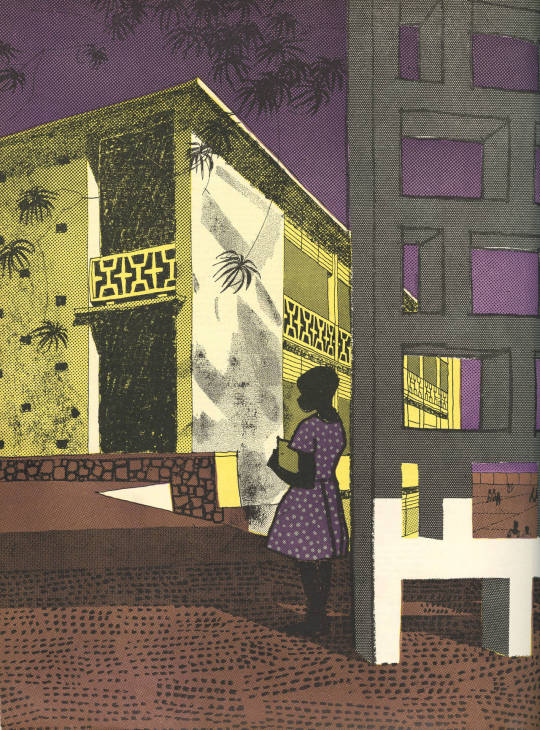
Illustration from The Architectural Review, 1953
2 notes
·
View notes
Text
Imagine if the Demigods could have internet/youtube

#percy jackson#youtubememe#pjo#camp jupiter#chb#meme#drawing#this is so funny#Annabeth would so make sims architecture reviews
157 notes
·
View notes
Text
You are enough,
just as you are,
and your presence
in this world matters.
#architecture#book blog#book photography#bookish#booklr#book review#bibliophile#books#feelings#beutyful#super beuty#beutiful#natural beuty
65 notes
·
View notes
Text





#book reviews#book club#bookshelf#new books#book#bookworm#bookstore#book quotes#books#booklr#book review#books and reading#readers#read#reading#currently reading#long reads#architettura#architect#architecture#interior decorating#interior#interior design#okuryazar#kitap okumak
132 notes
·
View notes
Text


Reproduction Renaissance revival door handle Björkboda 25 by Byggnadsapoteket/Rakennusapteekki, Finland. Originally manufactured by Björkboda, Finland. Nickel-plated brass and wood; steel interior parts.
Most architectural hardware factories in Sweden, Russia, and Finland produced Renaissance revival door hardware of this type from the late 19th through early 20th centuries. This model is from the end of the 19th century and shows the ornate scalloped edge rosette plates and beaded detail common in that period.
#björkboda#finnish design#metalwork#door hardware#door handle#renaissance revival#architectural detail#I'm linking to the English version of the website for the curious under source#but I'm warning you right now the text is bad and appears to have been translated by an AI from Finnish without human review#so this is my translation and paraphrase from the Swedish version up above
19 notes
·
View notes
Text

I'd been meaning to read this book for long enough that they came out with a revised edition in the interim. It by and large lived up to my expectations, although there were some places where the prose was overly verbose in the way academic texts sometimes get when they aren't being optimized for readability by non-academics.
The thesis of this book is that modern architecture (that is, architecture since the Renaissance, not architecture from the modernist movement of the 20th century) registers to the viewer as monstrous in a plethora of ways that are recognizable through categories of the monstrous more generally. "Wherever there is an erosion of the conventions and structures that hold the seams (and the semes) together, monsters emerge" they say in the introduction.
As I am not particularly knowledgeable about architecture, I found this book most useful as a catalogue of types of monstrousness and an explanation of setting as a way of communicating tone in movies, games, and other visual media. I actually paused reading this halfway though because the chapter "Reiteration and Reflexivity" made me think about the setting of The Matrix and Blade Runner movies and how the cyberpunk genre makes use of cities, something on which I will be trying to find further and more specific reading.
Another chapter I found particularly compelling for the way it resonated with media I like was "Insurgent Natures", which explores the entwining of nature with the manmade structure going back as early as the 1600s. In the 1600s Rome was in a period of archaeological excavation.
This living burial of the Eternal City was made only more obvious by ongoing excavations-- archaeology was very much the child of the Renaissance. The glories of antiquity were increasingly excised from the earth and beneath the fields. It is perhaps no surprise that invasive natures became a leitmotif.
This leitmotif was passed down when "the iconography of vegetal creep became the inheritance of the picturesque and romantic movements, when the sublimity of ruins provided an affective conduit to mythic history". This chapter positions the imagery of ruins in the process of being overtaken by nature as an artistic and architectural tradition 400 years old, with roots in Renaissance excavation of Rome and spurred on by the Romantics' fascination with and longing for "a medieval idyll (and everything since a progressive decay". The authors go on to pull this thread further into the present by way of the Hitler Youth Camps. The abutting of nature with the manmade by way of ruins is an attempt to "naturalize the highly artificial social structures that produced them". I most often see this particular imagery through the lens of fantasy media. What social structures are being naturalized by way of the ruins of the world in Lord of the Rings, in Breath of the Wild, of various D&D properties?
I hugely enjoyed this book and it has given me a lot to think about. I would recommend it to people who like architecture but also just to people who like visual media that has striking atmosphere, as this book might give you deeper insight into how buildings strike us. There's also a chapter in here, "Homunculism and Gigantism", that might be of particular interest to people who enjoyed the book Piranesi by Susanna Clarke, as it talks about the artwork of Piranesi in some detail. Piranesi has been on my to-read list for a while and I will probably come back to this chapter once I read it.
9 notes
·
View notes
Text









Cemetery Reviews #2 - Campo Santo
Campo Santo is the old cemetery of Zapatoca. It's quite small, and people are no longer buried there. Even so, what you see there is very special. There's a mausoleum, and although there are few tomb inscriptions, the ones that remain are quite old. I saw one from 1819, a death one year before independence. There is also a tomb of a German fugitive who lived a semi-feudal and lavish lifestyle in the 19th century.
Although his colonization and trade projects failed and his life ended in ruin, he has a tomb enclosed in its own fence. The guy also has a street named after him. Even if the foreigners who come here don't end up doing much, it's still cool to remember them because it's curious that they pass through here. The chapel is very small and only has a few benches, but the tombs, already piled up among themselves, are covered with grass, moss, and the trees surround the site. To get there, you can also climb a street with long stairs, and from the end, you can see the town from above. In a way, it's like you have to climb a little closer to heaven to see the site.
For these reasons, the bits of history, the curious characters, and the location, I found it to be a very beautiful place with a very fulfilling atmosphere.
8/10
#cemetery#cemeteries#graveyards#xix century#colombia#catholicsm#tombstone#history#cemetery reviews#town#germany#germans#colonial architecture#rustic#xix
20 notes
·
View notes
Text

Books of 2025: MINIMIZING MARRIAGE by Elizabeth Brake.
As part of my quest to read aro-adjacent nonfiction, I put in an inter-library loan request for this many moons ago. It's due back today, so naturally I finished it this morning at 12:04AM technically, we'll count that as a win.
The whole book was much more readable than expected, given that its header declares it STUDIES IN FEMINIST PHILOSOPHY--the prose was fine, actually! I don't have the background to speak to the philosophical or feminist framing of her arguments, but her main proposition is that reworking the institution of marriage to one of "minimal marriage" would be good for everyone. She defines minimal marriage as "a legal framework that avoids amatonormativity, supporting caring relationships including 'traditional,' polygamous, and same-sex marriages as well as 'Boston marriages,' friendships, and urban tribes." Basically: take the good parts of marriage (contractual agreements/protections, the social indicator of This Relationship Is Important To Me, forcing state/governmental recognition of chosen relationships, etc.), but divorce (ahaha) them from One Central Sexual/Amorous Relationship (and also from childrearing, because that could be a separate thing) and allow those benefits to be divvied out to an individual's network of care as they see fit. It was interesting!
Now, I didn't actually read this for the marriage angle, I read it for the amatonormativity pieces, so I blitzed through most of the book. Chapter 4, "Special Treatment for Lovers: Marriage, Care, and Amatonormativity," was where I spent most time and took the most notes. (For context: I took 4.5 pages of notes total, and 1.5 of those were on chapter 4.) I probably could've read just that chapter, honestly, and gotten what I wanted from this book--the focus on amatonormativity in this chapter was validating and coherent and well-articulated, which I appreciated as An Aro™ swimming in its mire. Example, from page 89:
Amatonormativity prompts the sacrifice of other relationships to romantic love and marriage and relegates friendship and solitudinousness to cultural invisibility.
Which!! Yeah!! That's it, baby!!!!
Anyway. Glad I finally got my hands on a copy of this, glad to have read it and to absolutely not have saved the relevant pages in digital format, because holy shit is it hard to find physically. A lot to chew on, but not as much as I feared from 206 pages of Philosophy; much more approachable than anticipated, if this is a thing you're interested in, too!
#books#books of 2025#minimizing marriage#elizabeth brake#amatonormativity#aro#book reviews#book photos#seriously i took SO MANY NOTES on chapter four lol#also i had to try twice to get the interlibrary loan to come in because it got canceled the first time??#and the librarian looked at me like i was nuts for asking but. it really was canceled. so he backpedaled lol#also. i got a copy from kenyon college's library. but even their hardback library copy was printed on demand in 2012????#i'm wondering if oxford ever actually published this book for real or if it's always been On Demand#which. would explain. why it's so expensive and hard to find.#was interesting! liked having access to the bibliography!!#but holy shit allo philosophers are Not Okay#especially not the het men allo philosophers i think#what a dumpsterfire#i have to turn this in this afternoon but it's a glorious day and i'm gonna take a walk about it >:D#oh yeah also: she did use WAY MORE EXCLAMATION POINTS than i was braced for?????#ma'am is that Legal in philosophy??????#the last academic book i read for fun was about architectural obsolescence and that author Certainly Did Not Do That but.#maybe decaying buildings are less fun than rights and justice#idk i don't go here
9 notes
·
View notes
Text




Testing Lomography Fisheye2 x Fujifilm 2014film. 23.11.2024, Rīga.
#riga#architecture#latvia#latvija#lomography#fisheye2#fujifilm#expired film#filmisnotdead#35mm film#film photography#analog photography#rīga#lost#basement review
8 notes
·
View notes
Text
Ariel
Sylvia Plath
It is difficult to write about Sylvia Plath's work. On the one hand she is one of the founders of the genre of "confessional poetry" and for her poetic works she was awarded the "Pulitzer Prize" in 1982 (posthumously).... On the other hand, the very public activity of Sylvia and her tragic death (suicide). However, the official version (suicide) was initially questioned by Sylvia Plath's relatives, who considered it a murder, arguing that similar mysterious deaths of Asya Vevil and her daughter Shura, which suggested the existence of a "series", and its "protagonist" was Sylvia Plath's husband Ted Hughes and at the same time Asya Vevil's lover. However, the matter did not go further than the assumptions. However, the poetry of Sylvia Plath perfectly characterises the environment in which she had to exist. This is particularly clear in the poems: "Sheep in the Fog", "Elm". "Death and Company", "On the Way There", "The Hanged Man", "The Edge" .... In the circumstances of the death of Sylvia Plath remains much unclear. It has been suggested that this suicide was actually a kind of thwarted staging: if the neighbour downstairs read the note addressed to him, the tragedy would probably have been prevented. The neighbour himself, Trevor Thomas, who had been unconscious for several hours - under the influence of the same gas that had leaked onto his floor - believed that Plath had switched on the cooker as a "distress call" for him to come to her rescue. That it was indeed a suicide is indicated by the testimony of the same neighbour, Trevor Thomas, that he had seen Sylvia the night before. "She had gone round to his house to get a stamp she was going to use to send a letter to America. She seemed unwell and nervous to Trevor. Plath insisted on reimbursing him for the value of the stamp. When he suggested that she not worry about it, Sylvia said that "otherwise her conscience before God would not be clear." The case of Sylvia Plath weaves together incompatible things - faith in God and suicide, which in Christianity is treated as one of the deadly sins. As for the poetry of Sylvia Plath and her first posthumous collection "Ariel", in my opinion an edition of such quality lacks the parallel text of the original. Without the latter at hand, it is difficult to assess the quality of the translation and the author's thought. Often one mistranslated or inaccurately translated word changes the whole idea of the work. But the fact that Sylvia Plath's poetry is really sincere and penetrates into the very soul allows her to classify it as confessional poetry.....
#academia aesthetic#chaotic academia#aesthetic#classic academia#dark academia#dead poets society#light academia#romantic academia#book review#donna tartt#sylvia plath#architecture#books & libraries#wine red#love quotes#tw depressing thoughts#original poem#poem#poetic#romanticism#old aesthetic
26 notes
·
View notes
Text

Kaoru Yamada
#kaoru yamada#art#artist#painter#woman#love#architecture#la disparition#book#books and reading#book review
2 notes
·
View notes
Text
Book Review #20 of 2025--

Shards of Earth by Adrian Tchaikovsky. Rating: 3.5 stars.
Read from March 21st to 26th.
A few months back my husband and a coworker were discussing books. Somehow it got brought up that I was feeling like I was in a SciFi drought. The last really good SciFi I read was The Expanse by James S.A. Corey and since then all of the other SciFi has felt not up to par. So, the next day my husband came home with the whole The Final Architecture series because I guess his coworker really liked this series and thought I would enjoy it. And following book one I'll say that he's kind of right. I enjoyed it enough to keep reading, but there are some aspects of Tchaikovsky's writing style that I don't enjoy.
I know that there's a glossary and everything in the back, but I feel like it was a copout. The author didn't explain his world or his characters well enough so instead of rewriting a lot of the beginning, his editors had him add this to the back instead. I am almost certain to be wrong about this. It's just how it felt while I was reading. The world building felt a little sloppy. I also didn't have the emotional attachment to the characters by the end of the story that I would want to have. They all went through it during the book and I still wasn't connected to them at the end. Maybe this will change over the course of the series as I read more and get a better feel for them. But the author managed to keep me feeling like I was at an arm's distance the whole time.
I still managed to have a good time while reading this one so don't think I hated this one. I definitely plan on continuing the series. I liked the concept for this one and as the story went along I definitely warmed up to it. I enjoyed the alien big bad that we had in this one and I really want to see where the story goes from here. I'm expecting a full blown war in the next book. I liked the found family aspect of it, even if I wasn't emotionally attached myself, and I'm so happy that the book doesn't end by breaking them all apart for no reason. I also like the fact that the characters we spend time with are all just doing their thing when they stumble into a political situation. They were just doing a job and now suddenly they're in it. I love when that happens.
Overall, this is a serviceable space opera (to me, for the love of God please don't take this personally) and I plan on continuing the series. I'm hoping the world building and character development can keep improving as we read on.
#book review#book reviews#Shards of Earth#The Final Architecture#Adrian Tchaikovsky#books read in 2025#2025 reading challenge#goodreads challenge#goodreads#bookish#booklr#bookblr#bookstagram#books#space opera#science fiction#sff#scifi
3 notes
·
View notes
Text

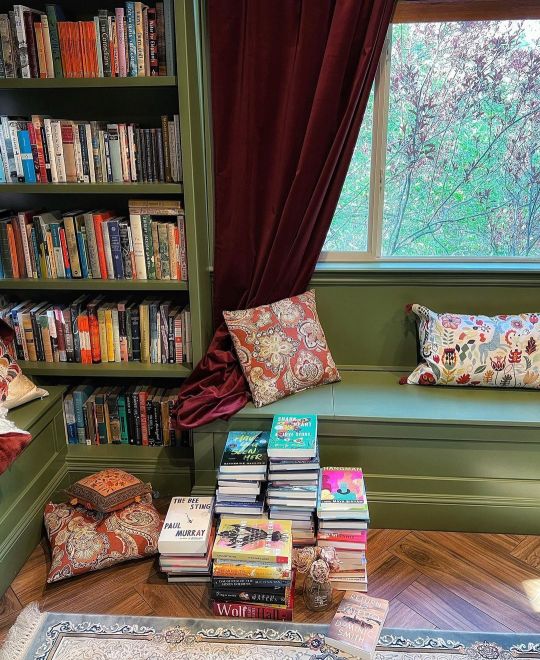
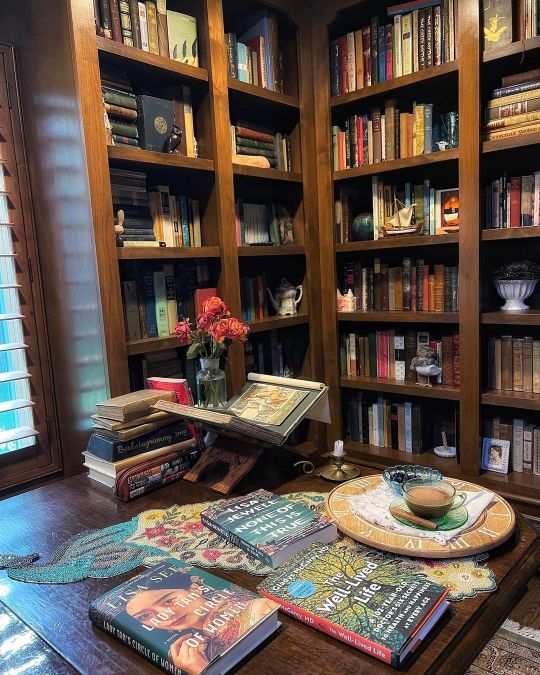
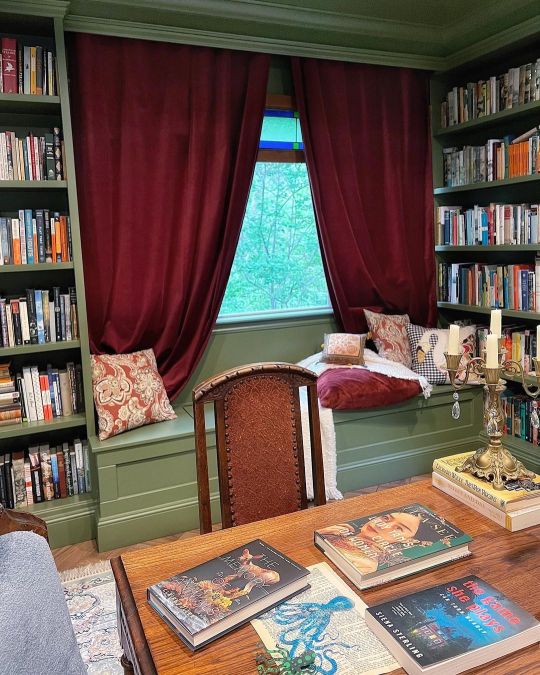

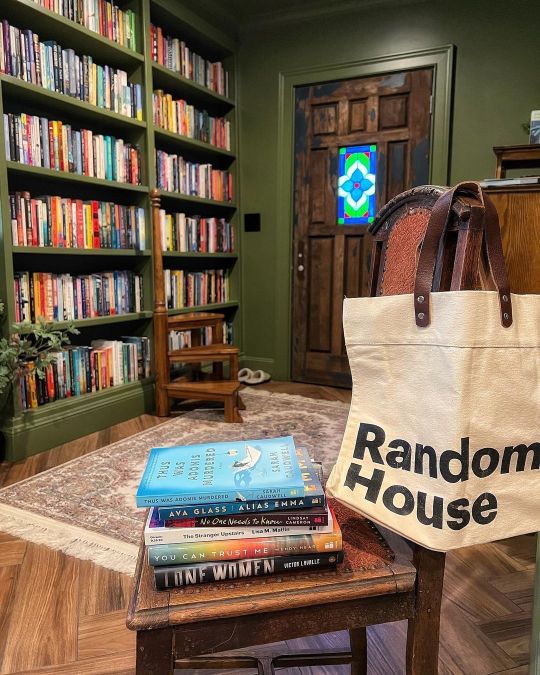




Photo: https://www.instagram.com/hotcocoareads/
#new books#book review#book quotes#book#books#booklr#bookblr#books & libraries#reading#books and reading#booklover#bookworm#public libraries#library#desing#interior design#design#architettura#architecture#home business#home improvement#home decorating#home decor#welcome home#homestuck#home#home & lifestyle#homemade
33 notes
·
View notes
Text
Aleyna Tilki Dans Şhow 0ffical video 🦊♥️
dailymotion
#aleyna tilki#animation#60s#across the spiderverse#anime and manga#arcane#architecture#artists on tumblr#artwork#asoiaf rp#celine dept#metekan1#hugh dancy#hairstyle#haircut#goodnight#goat#germany#hazard#gaming#iyi günler#günaydın#viral#vulture culture#belarus#viral valet review#viral video#uap#history#home
4 notes
·
View notes
Text
Sinking feeling that I've lost my essay which talked a bit about labour issues and rent seeking practices in the architecture profession. It wasn't the focus of it since I had to reel it back into archi theory but it was really fun to read about and I didn't keep a citation list elsewhere
#the actual essay itself was kind of boring it was a lit review comparing a few different books on iconic architecture#but you can see why I had to talk about labour for that
7 notes
·
View notes